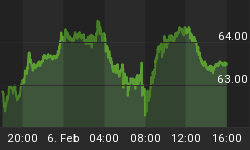I have been quasi-vacationing this week on the Continent, and trying to follow the news and the markets. This will be a brief comment but I wanted to make a couple of quick notes:
-
I did not, and I still do not, understand why there was such a violent (and negative) reaction to the Fed's statement and Bernanke's suggestion that the "taper" may start later this year and end in mid-2014. There are all kinds of reasons not to freak out about that. First, it was approximately what was expected (although two weeks ago there were many who thought absurdly that the Fed would begin a taper at this meeting). Second, the taper is contingent on growth continuing to strengthen, and there are scant signs of that. Third, as Bullard showed today there is far from a consensus on whether Bernanke's time frame is going to work out - and, while ordinarily the Fed Chairman's vote is the only one that matters, in this case he is not going to be present for the end of the taper so what really matters is who is selected to replace him. Fourth, QE isn't doing anything right now, except artificially depressing long Treasury yields. It is probably pressuring money supply growth, but not very much. The only thing that further QE will do is make the exit that much more difficult.
That said, the violent reactions to the Fed statement are prima facie evidence of what critics of the QE policy (me, for one) have always said: we have no idea how rates and markets will react when the Fed finishes and unwinds this policy, regardless of Bernanke's assurances. The harsh reaction (quite a bit more than I expected, especially with such a tepid adjustment to the expected trajectory) is great evidence of how over-dependent the market is on the view that the Fed's support makes losses extremely difficult. And, I will say again, this would be so much easier if the Fed wasn't telegraphing everything, because then investors would have invested with much more caution. The reaction this week was partly due to the shock of actually hearing the Fed mention a date for the first time.
-
Speaking of investing with much more caution, the amazing stress in certain ETFs that has accompanied significant but not exactly dramatic moves in (for example) emerging markets should blare two huge lessons to investors. The first is that you can't increase liquidity of a pool of assets by putting them in an ETF wrapper. A pile of illiquid securities, or securities that can become illiquid in a crisis, are not more liquid because you can get a quotation every second. An ETF consisting of emerging markets bonds is never going to be more liquid than the underlying emerging markets bonds (although it may be more granular, and there are other ETF advantages...but not liquidity). An ETF consisting of commodity futures, by contrast, will be tremendously liquid because the underlying commodity markets are tremendously liquid. The second lesson is more subtle, and that is that an ETF of less-liquid securities is, in a crisis, only as liquid as the least liquid element. If you present an ETF to me for redemption and there is 1% of it that I can't get any bid on, then the best you're going to get is a quote at 99% of the "fair" market price. And that is especially true these days, since dealers and market-makers are capital-constrained and can't merely take those illiquid positions on the books.
-
There is a lot of dry tinder around in the world today, and never for a minute suppose that they are not related. Stress begets stress. Two million people protesting in Brazil are doing so partly because of economic stress. Tight money market rates in China (persistent since if the central bank adds too much liquidity it will cause the CNY to depreciate) is a partial consequence of economic stress. A return of Greece from the frying pan to the fire: economic stress. And so on. This is not a safer world for all of the QE.
-
Finally, remember that growth and inflation are not related in any meaningful way. Median home prices rose more than 15% over the last year according to a report this week, and not because of great economic results. Money velocity is rising with interest rates although we may not see the results for some months. Inflation, which got a boost in the US this week with a strong CPI report (see my brief comments here), surprised on the high side in the EU and UK. TIPS yields are at +0.56% in the 10-year sector and 10-year breakevens are at 2.38%. There is absolutely no reason to own Treasuries rather than TIPS at this point. The 10-year expected real return of stocks is now less than 1.5% per annum above 10-year TIPS, and there is absolutely no reason to own equities rather than TIPS. Are TIPS cheap on an absolute basis? No. But they are screamingly cheap on a relative basis in an environment of rising inflation (and nothing the central banks can do about it - at least those who aren't actively trying to boost it). Long-time readers will know I have been tepid at best about TIPS for some time. But, while 0.56% isn't ridiculously cheap (and they could still get there!), our models are already maxed out on breakeven exposure and are starting to add to outright long exposure in TIPS.
You can follow me @inflation_guy!
Enduring Investments is a registered investment adviser that specializes in solving inflation-related problems. Fill out the contact form at http://www.EnduringInvestments.com/contact and we will send you our latest Quarterly Inflation Outlook. And if you make sure to put your physical mailing address in the "comment" section of the contact form, we will also send you a copy of Michael Ashton's book "Maestro, My Ass!"















